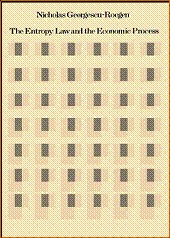MATERIALI PER LA DISCUSSIONE
CRESCITA E SVILUPPO SOSTENIBILE
Vengono qui raccolti per la lettura e la consultazioni materiali proposti da coloro che intendono contribuire alla discussione
I Titoli
I Riferimenti
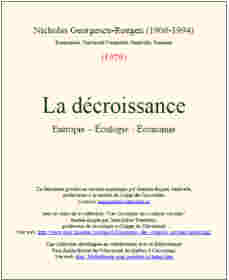

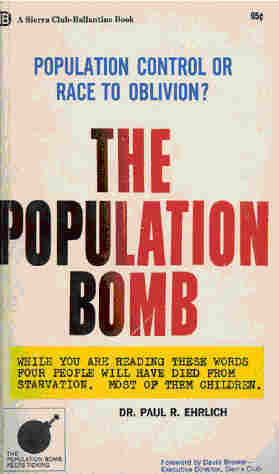
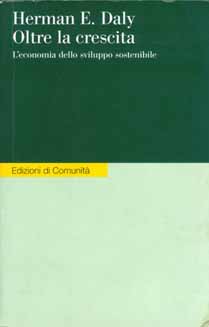
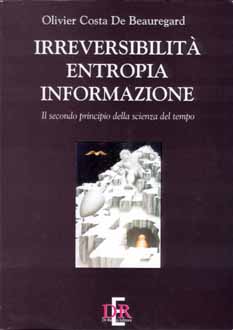
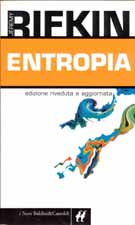

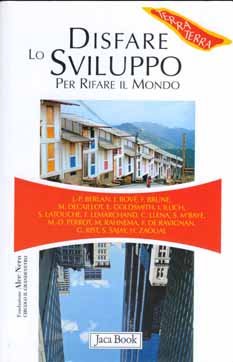
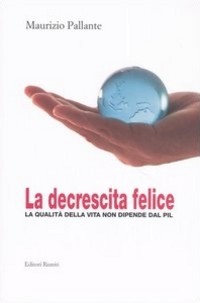
Garrett Hardin (1968); "The Tragedy of the Commons"; Science, 162 (1968):1243-1248
A "commons" is any resource used as though it belongs to all. In other words, when anyone can use a shared resource simply because one wants or needs to use it, then one is using a commons. For example, all land is part of our commons because it is a component of our life support and social systems. A commons is destroyed by uncontrolled use—neither intent of the user, nor ownership are important. An example of uncontrolled use is when one can use land (part of our commons) any way one wants.
Abstract established by Eduard Pestel (1972) of "The Limits to Growth"; a Report to The Club of Rome
If the present growth trends in world population, industrialization, pollution, food production, and resource depletion continue unchanged, the limits to growth on this planet will be reached sometime within the next one hundred years. The most probable result will be a rather sudden and uncontrollable decline in both population and industrial capacity. It is possible to alter these growth trends and to establish a condition of ecological and economic stability that is sustainable far into the future. The state of global equilibrium could be designed so that the basic material needs of each person on earth are satisfied and each person has an equal opportunity to realize his individual human potential.
Garrett Hardin (1977); "Ethical Implications of Carrying Capacity"
The carrying capacity of a particular area is defined as the maximum number of a species that can be supported indefinitely by a particular habitat, allowing for seasonal and random changes, without degradation of the environment and without diminishing carrying capacity in the future. There is some redundancy in this definition, but redundancy is better than inadequacy. Using deer as an example, the true carrying capacity of a region must allow for the fact that food is harder to get in winter than in summer and scarcer in drought years than in "normal years." If too many head of deer are allowed in the pasture they may overgraze it to such an extent that the ground is laid bare, producing soil erosion followed by less plant growth in subsequent "years. Always, by eating the grasses that appeal to them, herbivores selectively favor the weed grasses that are not appealing, thus tending to diminish the carrying capacity for themselves and for their progeny in subsequent years.
La sorte dei modelli della crescita dopo il 1972
"...
the original message in the words of Jay Forrester: "Over the last
hundred years, life on earth was dominated by growth. Growth of population,
of production, of income and capital formation, of exhaustion and pollution.
This growth is going to stop and must stop, and the only question is by what
means? Voluntarily, by government and free will, or through natural
processes, which means collapse and disaster?" . Although
thousands of scientists have devoted their efforts to the question of how
reliable Forrester's model WORLD III was, and whether it is even at all
possible to forecast the future in this manner, "Limits" has, in
our view, come through all the criticism untarnished. In the first place,
because the primary aim was not to make a prediction but "to improve
the insight"; and secondly, because nobody has yet really succeeded in
finding fault with the main calculations and the underlying hypotheses.
Since 1972, countless studies and books have been published that confirm the
message of "Limits"; but even more extensive than this scientific
work has been the worldwide denial of the limits to growth, and the
impassioned attempts to remain one step ahead of the imminent shortages
through policies of continued economic expansion. Meanwhile, additional new
insights have arisen, which not only confirm the impending disasters but
also indicate that the limits to growth may well have been exceeded and that
the world has been in a state of decline for some years already.
Robert U. Ayres et. al. (2000); “Weak versus strong sustainability”; Center for the Management of Environmental Resources INSEAD; Fontainebleau
The meaning of sustainability is the subject of intense debate among
environmental and resource economists. Perhaps no other issue separates more
the traditional economic view of the natural world from the views of most
natural scientists. The debate currently focuses on the substitutability
between the economy and the environment or between “natural capital” and
“manufactured capital”—a debate captured in terms of “weak” vs.
“strong” sustainability. In this paper the various
interpretations of these concepts are examined. In addition, the goal of
weak sustainability is critically evaluated. Attention is devoted to, among
other things, utility and lexicographic preferences, economic valuation,
natural science perspectives on sustainability, and the notion of
“consilience” as recently suggested by E.O. Wilson.
EU,
EC EPSD (2006); "Towards a Smart Growth Strategy for Sustainable development";
Report
no 3 ;
European Panel on Sustainable Development
Following the launch of the new initiative
Energy Policy for Europe (EPE) at the Spring Summit in March 2006, the
challenge is to re-launch the European sustainable development strategy
bringing together economic, social and environmental objectives and policies.The
purpose of this EPSD report is to contribute both to the debate on energy
and to the re-launch of the sustainable development strategy. The report
includes an introduction to the sustainability challenges faced by the EU
and the need to integrate economic, social and environmental goals and
policies into one comprehensive European strategy; a broad overview of
resource efficient technologies, focusing on energy technologies, which can
contribute to sustainable production and consumption; and, an analysis of
public policies for sustainability, including a discussion of how the
Commission proposal “A Platform for Action”, together with the Lisbon
strategy and the new EU Green Paper on “Sustainable, Competitive and
Secure Energy”, could be developed into a well co-ordinated investment
strategy for “smart growth”.
Corning (2002); “Thermoeconomics: Beyond the Second Law”; Institute for the Study of Complex Systems; Palo Alto, CA
Nicholas Georgescu-Roegen (1975); “Energy and Economic Myths”; Southern Economic Journal, 41, no. 3, January 1975
AA.VV. (2001); "Critic of neoclassical economy: reintegrate the natural sciences into economy"
Robert U. Ayres (2006); “Economic Growth” INSEAD; Boulevard De Constance; Fontainebleau
Mauro Bonaiuti (2003); "I dilemmi dell'economia solidale"
Giorgio Nebbia (2003); "Il '73, una lettura del primo shock petrolifero"
Giorgio Nebbia (2005); "Decrescita"
William Catton (1982); "Industrialization: Prelude to Collapse"; Overshoot:the Ecological Basis of Revolutionary Change"
Peter Vitousek, Paul R. Ehrlich (1986); "Human appropriation of the products of photosynthesis"; BioScience, Vol. 36, No. 6, June 1986
Sabine Hohler (2002); "Carrying Capacity. Ecologia ed etica dell'economia dell'astronave"; Hamburg University
Mathis
Wackernagel (2002); “Tracking
the ecological overshoot of the human economy”;
Edited by Edward O. Wilson,
Harvard University, Cambridge, MA
